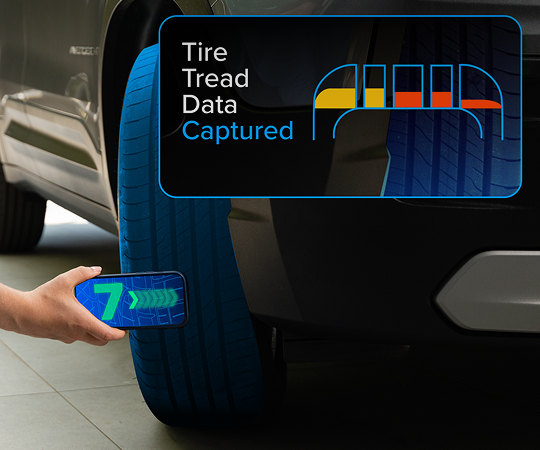
Commercial Fleet Safety Management: New Techs to be Compliant
All fleet operators must meet federal and state regulations including from the OSHA, the US Department of Transportation, and the Federal Motor Carrier Safety Administration (an agency within the DOT). The FMCSA oversees the Compliance, Safety, and Accountability (CSA) program that aims to spot safety concerns in vehicles and drivers with the goal of improving road safety. To do that, the FMCSA uses a program that scores how operators rank in safety over time based on roadside inspections and other steps.

Safety Measurement System
The Safety Measurement System is used to rank data in several key areas, including:
- Crash indicator
- Controlled substance
- Driver fitness
- Hazardous materials compliance
- HOS compliance
- Unsafe driving
- Vehicle maintenance
Commercial operators receive a score of between 0 and 100 in each area, with 0 being the best. When a high risk operator is determined, investigators are assigned.
In this blog, we’re going to talk about the following:
- Conventional data collection methods
- Automating data collection
- Short term benefits
- Long term benefits
Conventional data collection methods
Automating processes that typically follow conventional data collection, including driver licenses, house of service, license plates, and vehicle health, could help to save time and money and reduce errors. It also creates an audit trail to use when things go wrong.
Commonly fleet operators manually manage these tasks, gathering data like odometer, tire DOT, vehicle licenses and registration, and make and model data by hand. Moving away from handwritten logs can help to minimize errors.
Automating data collection
AI and computer vision enables the automated collection of data using a mobile, handheld device that captures visual information and can be integrated into the workforce or driver-facing apps.
Scanning options for fleet operators include:
- Vehicle Identification Number Scanning (VIN Scanning): Gather VIN information with a scan through a windshield using a mobile phone using this tool. It can read Vehicle Registration Certificates as well.
- License Plate Scanning (LPT Scanning): License Plate Scanning, such as Anyline’s, allows you to gather the license plate data with a smart device, which is then stored securely online or offline. This works on European, US, Middle Eastern and African license plates, allowing for automatic license plate recognition for fast and easy data collection.
- ID Scanning: Another essential source of data is, of course, the driver’s personal data. Instead of having to write down this information, you can simply scan the needed data from a passport or driver’s license. Anyline’s solutions support passports, ID cards, visas, and driver’s licenses, along with numerous others – and does so in many languages, allowing data to be collected in seconds.
- Tire Sidewall Scanning: With the ability to read tire identification numbers (TIN/DOT), tire size, and commercial tire serial numbers from any tire sidewall, users can quickly find key information such as the age, specifications, and production location of tires. Anyline tire scanner cuts the time needed to record tire sidewall information from minutes down to seconds. Features such as automatic orientation and continuous scanning help to make the solution easy to use without any specialist knowledge or training.
- Tire Tread Scanning: Using state-of-the-art AI and computer vision, this tool accurately measures tired tread depth using a mobile device – for both passenger and commercial vehicles.
- Odometer Reading: This tool captures analog and digital values for fast and secure mobile and web odometer readings, drastically reducing the time needed to collect the information while also reducing errors from manually inputting that data.
- Barcode Scanning: With over 40 different types of 1D, 2D, and stacked linear barcode symbologies supported, Anyline is the perfect choice for a wide range of use cases in retail, logistics and last mile delivery. Anyline is lightning fast, reading up to 500 barcodes every minute, and it performs even on damaged or partially obscured barcodes and in low light.
Short term benefits
Numerous reasons exist to implement mobile data capture solutions:
- It increases safety by reducing compliance and safety risks.
- It saves money by capturing data much faster and more accurately.
- It produces digital records that are objective and trustworthy rather than subject to human interpretation or errors.
- It prevents fraud and reduces compliance risks.
Long term benefits
Over the long term, the use of a mobile data collection tool like this can provide benefits such as:
- It works to improve driver satisfaction by automating processes, saving drivers time, and allowing them to focus on other safety tasks. It also minimizes risks associated with maintenance requirements, streamlining driver needs.
- It improves fleet health by providing insights into the fleet at any time, monitoring driver hours, and providing insights into adjustments to routes to save time and money.



